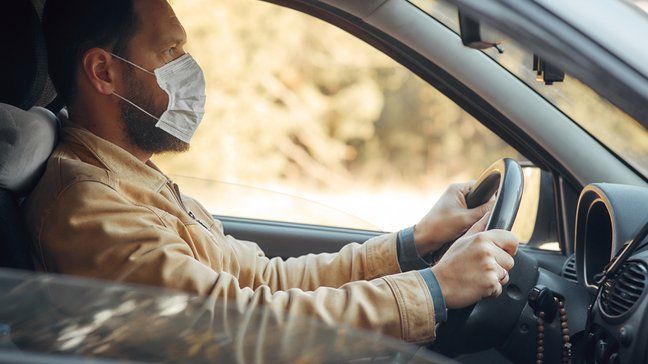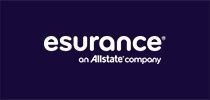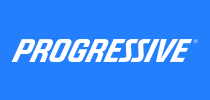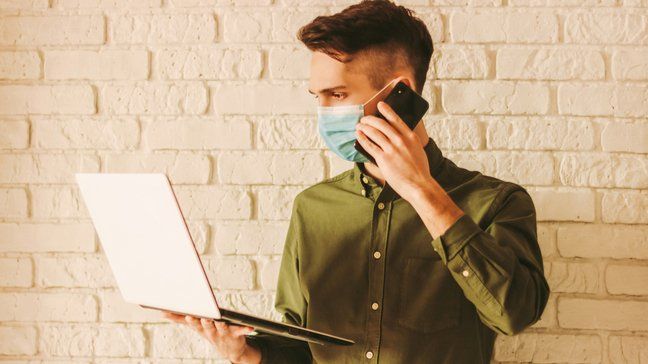With over 40 million Americans unemployed and a Recession on the horizon (or depending who you ask, already here), everyone’s looking at ways to cut costs.
As your keyfob collects dust, you might consider putting your car, or at least your car insurance, on the chopping block. After all, you’ve barely driven since this whole thing started; shouldn’t you be saving money?
Let’s investigate COVID-19’s impact on your car insurance.
First things first, don’t cancel your insurance
If you own a car, don’t cancel your insurance. Think of insurance like gas; you can’t drive without it.
Getting caught without proof of insurance is extremely expensive in all 50 states. First, the DMV will fine you and suspend your license until you provide proof of insurance, and purchasing insurance with a suspended license can cost tens of thousands of dollars extra before leveling out.
Also, being found at-fault in an accident sans insurance could put you on the hook for hundreds of thousands in medical bills, repair costs, and legal expenses. The sprinkle on top is potential jail time.
Needless to say, driving without insurance puts your entire livelihood at risk. It just isn’t worth it. Instead, let’s investigate how to save and stay legal.
How has COVID-19 affected the car insurance industry?

Since fewer folks are out driving, your premiums should go down, right? Well, let’s challenge that assumption.
The car insurance industry is entirely based on risk. Your insurance premium represents the intersection of three primary risk factors:
- How likely you are to file a claim.
- How expensive that claim is likely to be.
- How likely you are to shop around for a better rate (yes, auto insurance companies will charge you more if you don’t shop around for a better rate – learn how to avoid the “loyalty tax” in my piece on Price Optimization).
Let’s look at how the pandemic has affected the three primary risk factors.
How likely you are to file a claim
From February to April, the pandemic emptied roads by up to 60%. However, empty roads have emboldened speeders, so by some estimates, the roads are even more dangerous.
How expensive that claim is likely to be
Sales of new vehicles are down over 40%, so there’s a loose argument that you’re less likely to hit an expensive new car. However, medical bills are expected to increase to offset the tremendous burden COVID-19 has had on the healthcare system.
How likely you are to shop around for a better rate
Because roads are still dangerous and bills are higher, this is the only real reason why an insurance provider would lower rates. Data aside, they need to meet consumer expectations and remain competitive.
Most providers have preemptively offered rebates, discounts, and payment plans to retain policyholders during the pandemic. Their efforts seem to have worked since the retention rate among policyholders under 35 has increased.
Insurers won’t lower premiums unless they absolutely have to
In short, despite the emptier roads and plummeting car sales, there’s actually little mathematical reason why an insurance provider would lower premiums during COVID-19. If anything, higher rates of speeding and increased medical bills should have led to an increase in premiums.
However, consumer expectations of lower premiums and their increasing need to save have driven insurance providers to compete over who can be the most supportive.
Can you save money on your car insurance by switching to a pay-per-mile provider?
Liberty Mutual
Launched in 2017, Liberty Mutual’s ByMile program will only charge you premiums for the miles that you actually drive. You’ll start with a very low base rate per month, plus a few cents per mile, capped at 150 miles per day so that road trips won’t break the bank. As a result, Liberty Mutual claims that ByMile enrollees save 25-40% on their premiums as compared to a traditional policy – and that was before the pandemic kept everyone home.
Offering ByMile isn’t the only way Liberty Mutual is protecting its customers during COVID-19. The company has automatically waived all late fees and continued coverage for accounts with overdue balances. Plus, they’re also redistributing all unpaid balances across the remaining months of your policy, so if you owe $100 and have 5 months left, you only have to pay an additional $20 per month.
Liberty Mutual has automatically refunded two months of premiums by 15%, providing a total of $250 million of relief – a poster child for how to treat consumers during dire times.
What are other auto insurance companies doing to provide relief to customers?
Virtually every car insurance provider is offering a mix of discounts, rebates, and payment plans to soften the financial blow of the pandemic and retain policyholders. If you Google search “[your provider] COVID-19”, you’ll be directed to a page dedicated to summarizing your provider’s relief efforts.
Here are how just a few are handling COVID-19:
Allstate
 Allstate is offering a Stay-in-Place Payback program where all policyholders automatically receive 15% of their monthly premium back in the form of future policy credit. Plus, they’ll automatically cover a common insurance gap if you’re using your vehicle to deliver food or medical supplies if your area is in a state of emergency.
Allstate is offering a Stay-in-Place Payback program where all policyholders automatically receive 15% of their monthly premium back in the form of future policy credit. Plus, they’ll automatically cover a common insurance gap if you’re using your vehicle to deliver food or medical supplies if your area is in a state of emergency.
Interestingly, they’re also offering free Allstate Identity Protection through the rest of the year as long as you sign up by June 30th. It may not represent a direct savings, but protecting your identity during COVID-19 could save you thousands in the long run.
Esurance
 Esurance has provided an automatic 15% rebate for April, May, and June. They’re also offering their parent company’s free Allstate Identity Protection to all policyholders and filling the coverage gap for vehicles used to deliver food and medical supplies during a state of emergency.
Esurance has provided an automatic 15% rebate for April, May, and June. They’re also offering their parent company’s free Allstate Identity Protection to all policyholders and filling the coverage gap for vehicles used to deliver food and medical supplies during a state of emergency.
Lastly, Esurance invites policyholders to call 1-800-ESURANCE to discuss a payment plan, if necessary.
Progressive
 Progressive has launched the Apron Relief Program, bringing $1 billion in relief to “customers, employees, communities, and agents.” For policyholders that means a 20% premium credit for the months of April and May, expanded coverage for medical/food deliveries, payment plans, and expedited roadside assistance.
Progressive has launched the Apron Relief Program, bringing $1 billion in relief to “customers, employees, communities, and agents.” For policyholders that means a 20% premium credit for the months of April and May, expanded coverage for medical/food deliveries, payment plans, and expedited roadside assistance.
Perhaps most notably, the company will defer your deductible if you can’t pay out of pocket for your vehicle repairs during the pandemic.
In total, you can expect an automatic ~15% premium credit and additional billing help if you need it during the pandemic. But with a little effort, you can save a lot more.
How else can you save on car insurance during COVID-19?

Here are my three favorite ways to save on car insurance right now:
Call your provider and just ask
The fastest and most effective way to save on car insurance is also the simplest; just call them up and ask. Your agent will make sure you’re already enjoying the basic discounts, then ask you questions about recent life events that could significantly lower your premiums. Married? Discount. Turned 26? Discount. Good grades? Discount.
Lower your coverage
It may be time to raise your deductibles or erase certain types of coverage altogether. For example, if your car is spending most of the pandemic safely tucked away in a garage, you may want to raise your comprehensive coverage.
Shop around
Car insurance companies will likely seek to recoup COVID-19 related costs through price optimization. You can immunize yourself and potentially save hundreds by spending an afternoon collecting a half-dozen new quotes.
Consider your mileage
Now, one thing I haven’t yet touched on is mileage. If the roads are more dangerous during the pandemic, shouldn’t you be rewarded for staying home?
Surprisingly, most providers will only lightly reward low mileage drivers, if at all. If you’re looking to save big by not driving, consider a pay-per-mile provider.
How will COVID-19 change the future of the car insurance industry?
The global insurance industry has already lost $760 billion due to COVID, but auto insurance is a strange beast with countless factors for and against its survival.
McKinsey & Co.’s best-case scenario is that a quick economic rebound, combined with pent-up demand, will explode new car sales and thus the revenue from increased premiums and new policies. Plus, empty roads and cautious driving behavior will reduce claims, offering providers some much-needed profiting quarters.
The company’s worst case, “Black Swan” scenario (carrying similar probability) is that consumer and regulatory pressure could push premiums down further, even as increased claims and plummeting car sales eviscerate revenues.
Looking at the long term, I think telecommuting will have the biggest impact on the auto insurance industry. At least half of Americans are no longer commuting to work. And while some may return post-pandemic, many companies are considering keeping employees home to cut overhead costs and liabilities in the face of the COVID Recession.
Furthermore, the top quintile of American workers by income are twice as likely to telecommute as everyone else. That means that auto insurance providers may begin losing their highest-paying policyholders (with luxury cars and low deductibles).
Overall, it’s hard to predict, but will be fascinating to watch.
Summary
The global pandemic and America’s shrinking mileage have severely impacted the car insurance industry. Despite the data to support steady premiums, providers have admirably reduced rates, filled coverage gaps for delivery drivers, and supported local communities.
While you can’t cancel your coverage (without risking your freedom and livelihood), you can save thousands over the course of the pandemic by taking advantage of your provider’s COVID-related and preexisting discounts, shopping around, and reducing your coverage to match your new budget and lifestyle.
